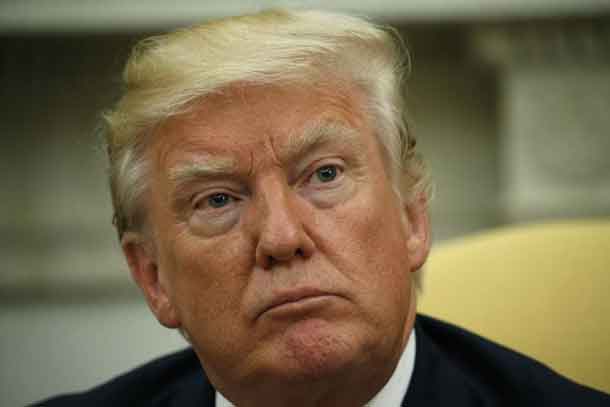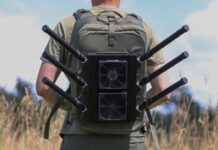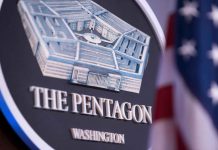WASHINGTON – NEWS – NATO leaders meeting in Brussels discussed the response to Russian aggression in Ukraine, ways the alliance can support Ukraine’s defense, and ways to best defend NATO nations, said alliance Secretary General Jens Stoltenberg.
The secretary general spoke following the meeting of NATO heads of state that includes President Joe Biden. Stoltenberg called Russian President Vladimir Putin’s war in Ukraine “the greatest security threat in a generation.”
The Russian invasion has solidified the 30-member NATO alliance in opposition to Putin’s threats, not only to Ukraine, but to the international rules-based order.
“The people of Ukraine are resisting with courage and determination fighting for their freedom and for their future,” Stoltenberg said. “We stand with them.”
The summiteers heard from Ukrainian President Volodymyr Zelenskyy. The Ukrainian leader thanked NATO allies for their support, and he asked for even more military assistance, the secretary general said.
“Today, NATO leaders agreed that we must and will provide further support to Ukraine,” he said. “We will continue to impose unprecedented costs on Russia, and we will reinforce Allied deterrence and defense.”
During the summit, leaders approved four new NATO battlegroups in Bulgaria, Hungary, Romania and Slovakia. These join four existing battlegroups in Estonia, Latvia, Lithuania and Poland. These NATO formations stretch “from the Baltic Sea to the Black Sea,” Stoltenberg said.
He noted that the United States now has more than 100,000 troops in Europe and that there are 40,000 forces under direct NATO command, mostly in the eastern part of the alliance.
These forces are backed by major air and naval power, “including an unprecedented five carrier strike groups from the High North to the Mediterranean,” he said.
But NATO leaders are looking to the future. The secretary general said the Russian invasion has changed the security environment on the globe and the alliance must respond. “Today, NATO leaders agreed to reset our deterrence and defense for the longer-term, to face a new security reality,” he said.
NATO will place more land forces in the eastern countries of the alliance and place prepositioned equipment and supplies there.
“In the air, we will deploy more jets and strengthen our integrated air and missile defense,” he said. “At sea, we will have carrier strike groups, submarines and significant numbers of combat ships on a persistent basis. We will also strengthen our cyber defenses.”
The alliance will also step up exercises, focusing on collective defense and interoperability, he said.
Stoltenberg said alliance officials will work with member states to hash out the details of the plan so leaders can decide on the program at the Madrid Summit in June.
The allies will continue to provide significant support to Ukraine, including anti-tank and air defense systems, and unmanned aerial vehicles. These capabilities are proving highly effective against the Russian invaders, Stoltenberg said.
The allies will also continue substantial financial and humanitarian aid.
The allies pledged to do more, including cybersecurity assistance and “equipment to help Ukraine protect against biological, chemical, radiological and nuclear threats,” he said. “This could include detection, protection and medical supplies, as well as training for decontamination and crisis management.”
NATO cannot allow this war in Ukraine to metastasize. “We have a responsibility to ensure the conflict does not escalate further, because this would be even more dangerous and more devastating,” the secretary general said. “Allies agreed that we must also increase our support for other partners at risk from Russian threats and interference including Georgia, and Bosnia and Herzegovina.”
The leaders addressed Beijing’s role in the crisis. “Today, allied leaders called on China to refrain from supporting Russia’s war effort,” Stoltenberg said. “China must not provide economic or military support for the Russian invasion. Instead, Beijing should use its significant influence on Russia and promote an immediate, peaceful resolution.”
The allies also called on Belarus to stop enabling the Russian invasion.
The leaders reaffirmed their support for the alliance’s open-door policy. “NATO enlargement has been an historic success, spreading democracy, freedom and prosperity across Europe,” he said. “One month since the start of Russia’s invasion of Ukraine, NATO’s security environment has fundamentally changed for the long haul, and we are responding.”






